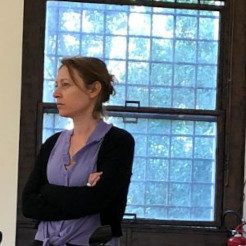
Silvia Cristofori is associate professor of history of Christianity at the Department of Human Sciences of Link Campus University (Rome) where she teaches “Media and Religion”, and “Religions, Identities, Politics”. She is an affiliated researcher at the national Research Infrastructure for religious studies (FSCIRE – Bologna), leader institution of the European Research Infrastructure RESILIENCE. She is a member of the scientific board of the national doctoral school on religious studies (DREST) and has been involved in several national and international research teams. Currently, she is the scientific director of the European Jean Monnet project “Freedom of Belief and Right to Information (FreeBeRi)”, member of the research team of the Jean Monnet chair coordinated by Prof. Filippo M. Giordano, and member of the scientific board of the Jean Monnet Teacher Training coordinated by Prof. Giorgio Grimaldi. She holds a PhD in Ethnology and Anthropology (final grade: excellent) and was post-doctoral researcher at the Foundation for Religious Studies (Bologna, 2012-2014) where her research was granted by the Emilia Romagna Region program for the Development of innovative ideas and projects. Her work is strongly interdisciplinary and includes archival and field research carried out in Rwanda, Senegal, Italy, the USA, and France. Keywords: Conspiracy theories against/within religions; Hate speeches; Freedom of Religion and Belief (FoRB) in EU international policies.
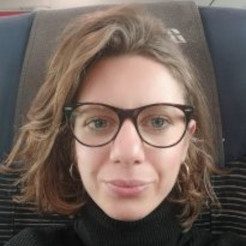
Cristina Natili is a sociologist and expert on migration and human rights. She is the project officer of the Jean Monnet projects at the Link Campus University. She worked for more than three years on projects to create social inclusion pathways for refugees and asylum seekers. She contributed to projects managed by the “CIR - Italian Council for refugees” and the “CEIS - Don Mario Picchi” in this field. She is a member of the European Federalist Movement and her main interests are the reception of migrants and the functioning of the European Union. Keywords: Sociology of migrations and Human rights, European Union and migration policies.
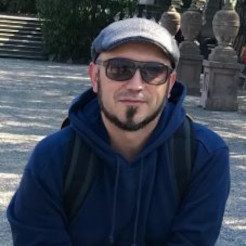
Marco Castagnetto Alessio is PhD candidate in social research at Link Campus University in Rome, MA in Sciences of Religions in Padua and Venice and lecturer in Religions, Parties and Identity in the Specialization Course in Religious Sciences and Intercultural Mediation of the University of Turin. His research focuses on New Religious Movements in sociological perspective, Western esotericism studies, traditionalist European neo-paganism and its relationship with alt-politics and the soteriological philosophies of India (mainly advaita vedānta and mahāyāna Buddhism). He is member of AIS (Italian Association of Sociology, section of Sociology of Religion) and of the organizing committee of CRAFT (Contemporary Religions and Faiths in Transition) at the University of Turin. In 2020 he authored The lotus and the sword. Aurobindo Ghose's thought and its reception in the West for Franco Angeli (Milan). He is one of the Italian representatives of the COST Action Connecting Theory and Practical Issues of Migration and Religious Diversity (COREnet). Marco Castagnetto’s research also focuses on the relations between digital cultures and New Religious Movements with a particular focus on hindū-inspired groups and the modern esoteric milieu. Keywords: Religious governance, religious pluralism, New Religious Movements, conspirituality, contemporary esotericism.
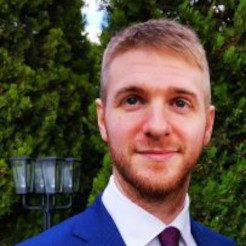
Federico Castiglioni works as a researcher in the "EU, politics and institutions" program of the Istituto Affari Internazionali (IAI). In 2019 he earned his PhD in European Studies at the Roma Tre University, presenting a reconstruction of the war on terror in Afghanistan and Iraq from the point of view of the European Union. From 2019 to 2020 he worked at the European Parliament as a policy advisor in the Defense Commission (SEDE), following the negotiations for the European Defense Fund. From 2020 to 2022 he was employed by the consulting firm Zanasi&Partners, specialized in European security and defense. In the academic year 2021-2022 he was a contract professor of "European Governance" at the Orientale University of Naples and a Jean Monnet professor at the Link Campus University of Rome. He is part of the editorial board of The International Spectator and collaborates with various magazines (Formiche, Difesa online, Eurocomunicazione) mainly dealing with European politics. Keywords: History of international relations, European Governance and politics, European security and defence.
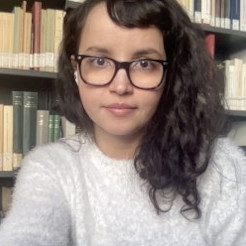
Since 2022 she has been a student fellow at FSCIRE. In 2021 she obtained her second Master’s degree at the University of Bologna (faculty of Political Science) in the field of Politics of Contemporary Asia by defending her thesis entitled Muslims of China and the Uyghur Dilemma: Terrorism, Separatism and Islamophobia. In 2016 she earned a Master’s degree in Languages and Cultures of Asia and Africa at the University of Bologna, where she graduated with honors. Between July 2015 and July 2019 she spent several study and research periods at Shenyang Normal University, Renmin University of China, Xi'an International Studies University and Xiamen University, learning standard modern Chinese language and conducting research on the two main Chinese Muslim ethnic minorities, the Hui and the Uyghurs. Her research interests are aimed in particular at history of Islam in China, Sinicization of Religions, and the foreign policy and international relations between the People's Republic of China and the European Union. Keywords: WeChat, Chinese Users, Islamophobia, Conspiracy Theories, Fake News, Islam, Islamisation of Europe, China, China-EU Relations, European Union, Human Rights Violations, Religious Freedom, Xinjiang, Hui, Uyghurs.
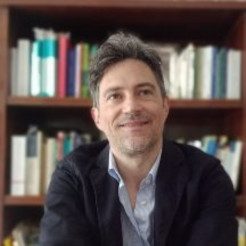
Filippo Maria Giordano is Associate Professor of Contemporary History at Link Campus University of Rome, where he teaches Contemporary History, History of Contemporary Culture and Contemporary History and Media History. At the same university he holds a Jean Monnet Chair on Cinema and European History (Ciak-EU! - EU-rope through films: History, Identity, and Policies). He has taught History of European Integration at the Department of Political and Social Sciences of the University of Bologna (Forlì Campus) and History of International Relations at the Department of Culture, Politics and Society of the University of Turin, where he also held a 'Jean Monnet' Module on the religious factor in European integration (R4EU). He has been collaborating for years with the Centre for Studies on Federalism in Turin and is a member of TO-EUrope. Centre for European Studies of the University of Turin and of La.S.P.I. - Laboratory of History, Politics, Institutions of the DiGSPES Department of the University of Eastern Piedmont. He is editor-in-chief of the scientific journal De Europa - European and Global Studies Journal and editor of the 'research' section of the scientific journal Labsus - Laboratory for Subsidiarity. He is the author of books and essays on the history of the European integration process, European identity, Euroskepticism and Europeanist and federalist movements. Keywords: ecumenism, Europeanism, euroskepticism, federalism, irenicism, pacifism, Protestant thought, European policies, European Union.
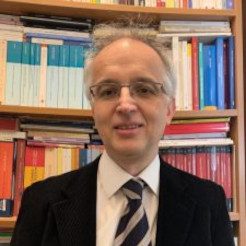
Giorgio Grimaldi is associate professor of History of International Relations at the Department of Human Sciences of Link Campus University (Rome) where he teaches “History of International Relations” and “History of Europen Politics” and is Coordinator of the Jean Monnet module “EDCSEU - Europarties, Democracy and Civil Society in the EU” and of the Teacher Training Jean Monnet project “EUlink – European Civic Education”. He also teaches “Contemporary History and Territorial Sources” at the Department of Economics of the University of Genoa (Campus of Imperia). He holds a PhD in History of Federalism and European Unity and he has been involved in several research projects including especially the history of the European integration, federalism and green parties (at the Centre for Studies on Federalism in Turin and, as research fellow, at the University of Turin, the Scuola Superiore Sant'Anna in Pisa and the University of Genoa). He is author of works on these topics and is also member of the scientific committee of CesUE (Centre for Studies, Training, Communication and Planning on the European Union and Global Governance), spin-off of the Scuola Superiore Sant'Anna. Keywords: Climate change religious denialism, European integration and freedom of religion or belief, Religions and European parties, Spiritual views of European integration, Religious and antireligious conspiracy views of the European Union, Climate change religious denialism.
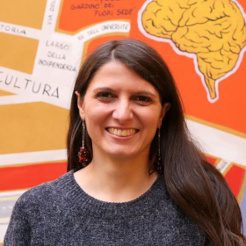
She is junior fellow at Fondazione per le Scienze Religiose where, in the field of the research project on the Nicene-Constantinopolitan Creed, she studies the revisions made to the text of the Creed by the liturgical reform of Patriarch Nikon (1605-1681). In May 2022 she obtained her PhD from the University of Modena and Reggio Emilia with a thesis entitled: The History and Policy of the Department for External Church Relations of the Moscow Patriarchate: The Case of Ukraine (1989-2009). During 2018 -2020 she was a visiting student at the Center for the Study of Religions - RGGU (supervisor: Prof. A. Agadjanian). She published "Communist War Against Religion and the Rise of the Ukrainian Autocephalous Orthodox Church, 1917-1939," in War and Communism. The Violent Consequences of Ideological Warfare in the 20th Century. War (Hi) Stories, Vol: 11, ed. by T. Hirschmüller, F. Jacob, Leiden, Brill - Schöningh, 2022, pp. 137-161; Interreligious and Interfaith Dialogue in Post-Soviet Russia: Debates about Secularism and Post-secularism, in ARSR, Vol. X, Interreligious Dialogue: From Religion to Geopolitics, edited by G. Giordan, A.P. Lynch, Leiden, Brill, 2019, pp. 181-197. Keywords: Russian Federation; proselytism, religious minorities; human rights; European Union; Council of Europe.
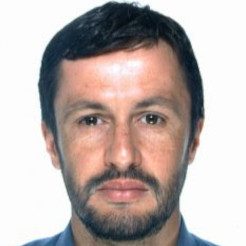
Edoardo Quaretta is associate professor of Cultural Anthropology at Link Campus University in Rome. He holds a PhD in Ethnology and Anthropology from the University of Perugia and the Free University of Brussels. He has conducted fieldwork research in the Democratic Republic of Congo since 2006 and in South Africa since 2017. His research interests include the social construction of childhood, school systems in Africa, witchcraft in Central Africa, Pentecostal churches, humanitarian aid, and the history of Catholic missionaries in Africa. He is member of the scientific committee of the series Mémoires lieux de savoir. Archives congolaises and La Région des Grands Lacs Africains. Passé et Présent published by L'Harmattan. Among his latest publications: “Kapopo, the incurable illness. Structural violence, social suffering and spiritual healers in the Democratic Republic of Congo”, in S. Fancello, A. Gusman, Charismatic Healers in Contemporary Africa, Bloomsbury, 2022; “The State and 'Its Responsibility'. School, Welfare State, and Community building in Lubumbashi (DRC)”, in W. Adebanwi, Everyday State and Democracy in Africa, Foreword by J.&J. Comaroff, Ohio UP, 2022. Parole chiave: studi africani, etnografia, teorie del complotto, stregoneria, Repubblica Democratica del Congo, migrazioni. Keywords: African studies, ethnography, conspiracy theories, Democratic Republic of Congo, migrations. Key words: African studies, ethnography, conspiracy theories, witchcraft, migrations.
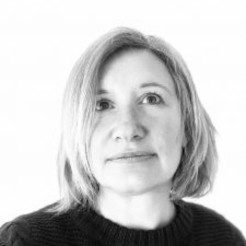
Desirée Sabatini is associate professor in performing arts disciplines at Dams, Link Campus University, where from 2017 to 2021 she was a research fellow on theatrical audiovisuals. She obtained her PhD in History, Theory and Technique of Theatre and Performing Arts at the University of Rome, where she was subsequently, from 2012 to 2015, holder of a senior research grant for the European project European Library of Artistic Performance and a research grant for the project: "Technologies and methodologies of analysis and restoration of digital performance". The field of research concerns the use of digital technologies for the history of theater and, in particular, the interaction between scientific and technological research and studies on theater, through an in-depth use of audiovisual sources, editing, edition of theatrical audiovisuals, completed at research and pedagogy; the creation of digital archives of the theatrical memory; the restitution, thanks to digital restoration, of historical audiovisual documents. Keywords: Theater, satire, religion, comedian, censorship.
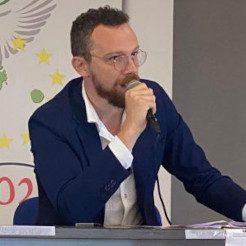
Tommaso Visone is Associate Professor of History of Political Doctrines (SPS/02) at Link University, Adjunct Professor of Political Thought for Colonization and Decolonization (SPS/02) at Sapienza University of Rome and Associate Researcher at the Institute for Research on Population and Social Policies of CNR. PhD in Political Science, he has been research fellow in History of Political Doctrines at the Scuola Superiore Sant'Anna in Pisa for four years and in History of Economic Thought at the University of Roma Tre for two years. He has also conducted research at the Université Paris I Panthéon-Sorbonne, CesUE (Scuola Superiore Sant'Anna di Pisa), A.R.E.L.A. and the Centro Studi sul Federalismo in Turin. His research interests focus mainly on the history of the idea of Europe in the 20th century, the thought of Albert Camus, the intellectual history of federalism, decolonial thought and the history of democracy. He has taken part in research projects and teaching activities at the Université Savoie-Mont Blanc, the University of Cyprus, the University of Cambridge, the University of Hong Kong, Universitatea din Bucuresti and the University Federico II of Naples. In 2019, he was Visiting Professor at the Université El Manar in Tunis. He directs the Teoria e ricerca sociale e politica series at the Altravista publishing house in Pavia and has been the editor of the magazine Stati Uniti d'Europa for the Critica Liberale Foundation. He is a member of the editorial staff of Euractiv.it. Keywords: European plot, great replacement Kalergi plan.
